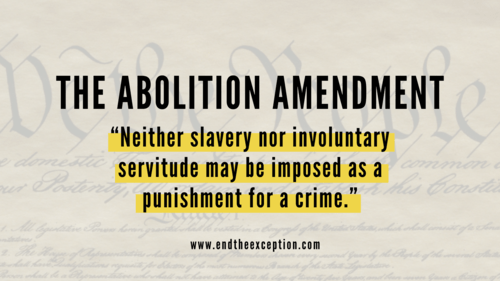Forced Prison Labor Rejected By Voters in Four of Five States
Voters in five states saw ballot initiatives to prohibit involuntary servitude as a punishment for crime

In yesterday's midterm US elections, voters in four states approved ballot measures that will change their state constitutions to prohibit slavery and involuntary servitude as punishment for crime, while those in a fifth state rejected the move. The ballot measures approved Tuesday curtail the use of prison labor in Alabama, Oregon, Tennessee and Vermont. None of the proposals would force immediate changes inside the states’ prisons, but can lead to legal challenges concerning the practice of coercing prisoners to work under threat of sanctions or loss of privileges if they refuse the work.
In Louisiana, a former slave-holding state, voters rejected a ballot question known as Amendment 7 that asked whether they supported a constitutional amendment to prohibit the use of involuntary servitude in the criminal justice system.
The effort is part of a nationwide effort from criminal justice advocates to amend the 13th Amendment to the U.S. Constitution that banned enslavement or involuntary servitude except as a form of criminal punishment. That exception has long permitted the exploitation of labor by convicted felons.
“The idea that you could ever finish the sentence ‘slavery’s okay when ... ’ has to rip out your soul, and I think it’s what makes this a fight that ignores political lines and brings us together, because it feels so clear,” said Bianca Tylek, executive director of Worth Rises, a criminal justice advocacy group pushing to remove the amendment’s convict labor clause.
After yesterday’s vote, more than a dozen states, including California, still have constitutions that include language permitting slavery and involuntary servitude for prisoners. Concerns over the financial impact of prison labor led California’s Democratic-led Legislature to reject an amendment eliminating indentured servitude as a possible punishment for crime after Gov. Gavin Newsom’s administration predicted it could require the state to pay billions of dollars at minimum wage to prison inmates.
Can California really call itself a "progressive" state when financial concerns are prioritized over the dignity of fair wages and a safe working environment for all workers? This issue will appear again before the California State Legislature.. It's time to be a leader and not a laggard in championing fair wages for all workers.
Visit the website for Worth Rises to see their advocacy and progress toward ending prison profiteering on the backs of forced prison labor.










